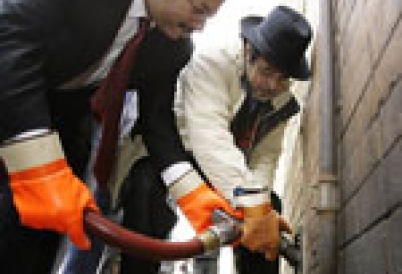Nuclear power, long on the outs, is fashionable again—But can an expansion of nuclear energy in Latin America reduce dependence on the energy produced by fossil fuels or hydropower?
Eurasia Group’s Patrick Esteruelas talks about how the plummeting price of oil affects Venezuela’s economy and regional diplomacy. “By all accounts, Venezuela is destroying assets much more quickly than it’s been building them,” he says.
President Hugo Chávez has decided to sustain an international fuel assistance program for low-income Americans. But dropping oil prices could force his government to feel the economic pinch and slow international oil diplomacy efforts.
Falling commodity prices and the global liquidity crisis present a challenge for Latin America’s energy sector. An AS/COA panel analyzed how these factors affect energy investment.
Originally published in Americas Quarterly, Dominican Republic President Leonel Fernández's memo to the U.S. President-elect calls for investing a portion of oil profits in countries that have been hit hardest by rising oil and food prices.
At a time when ethanol production faces the effects of the global credit crunch, questions arise about how Latin America and a new U.S. administration will cooperate in the field of biofuels.
After months of debate, Mexican Congress passed a historic energy reform package granting Pemex greater autonomy and the right to sign incentive-based contracts with private firms.









